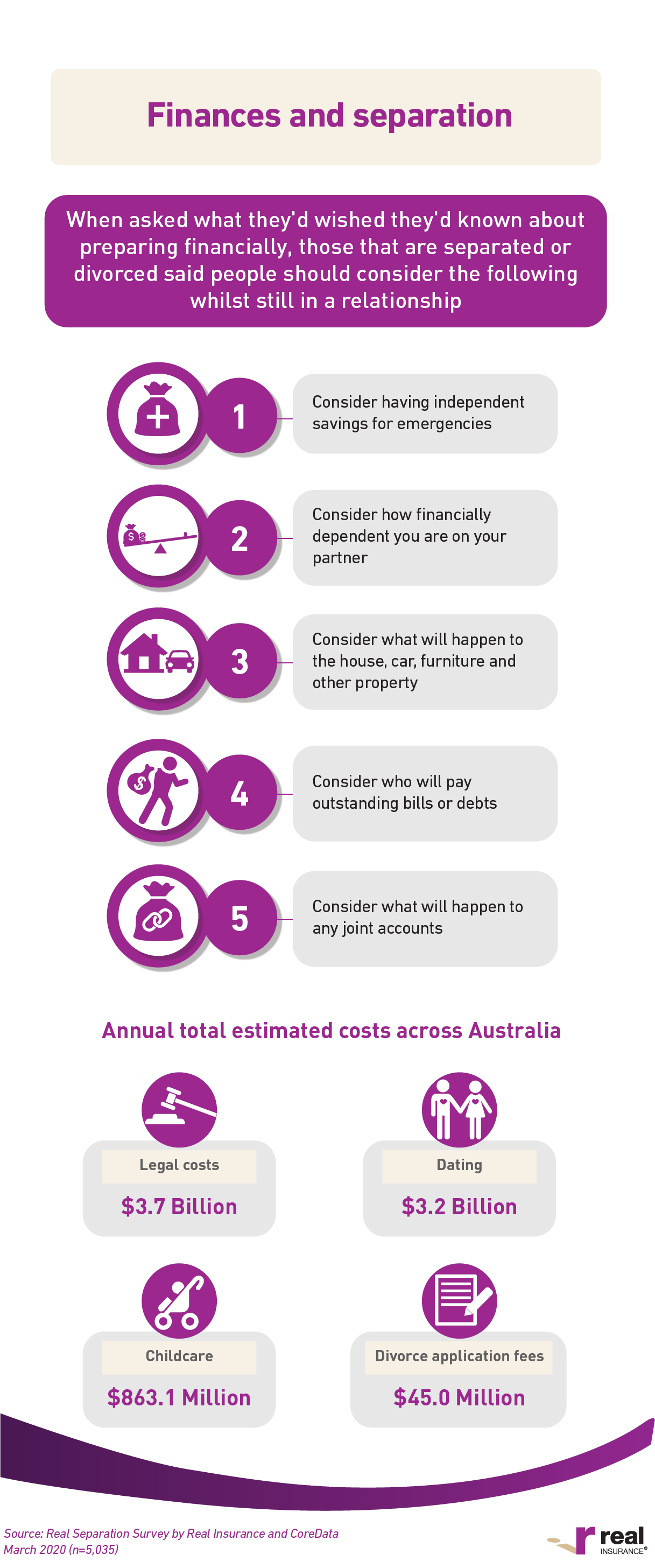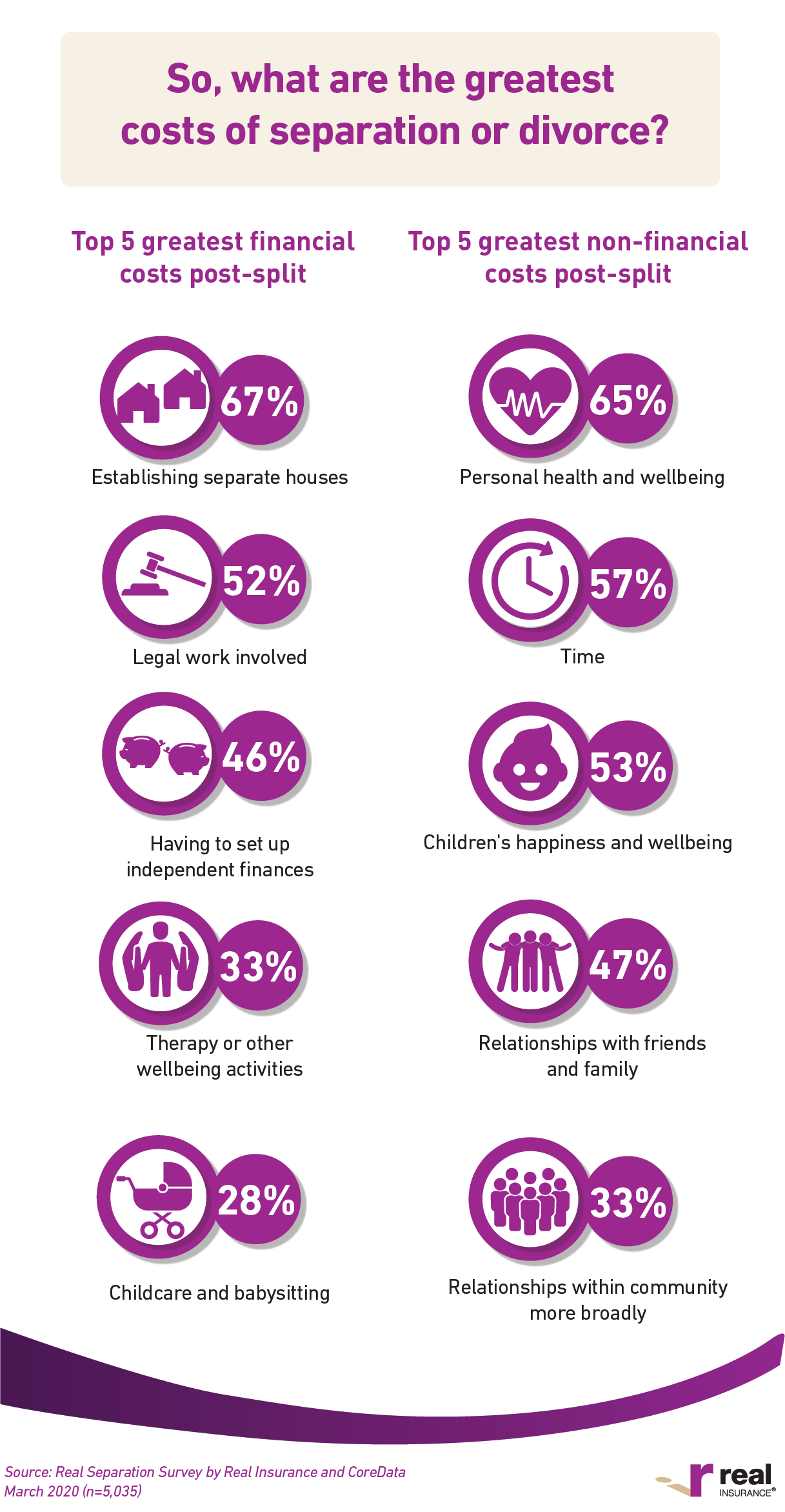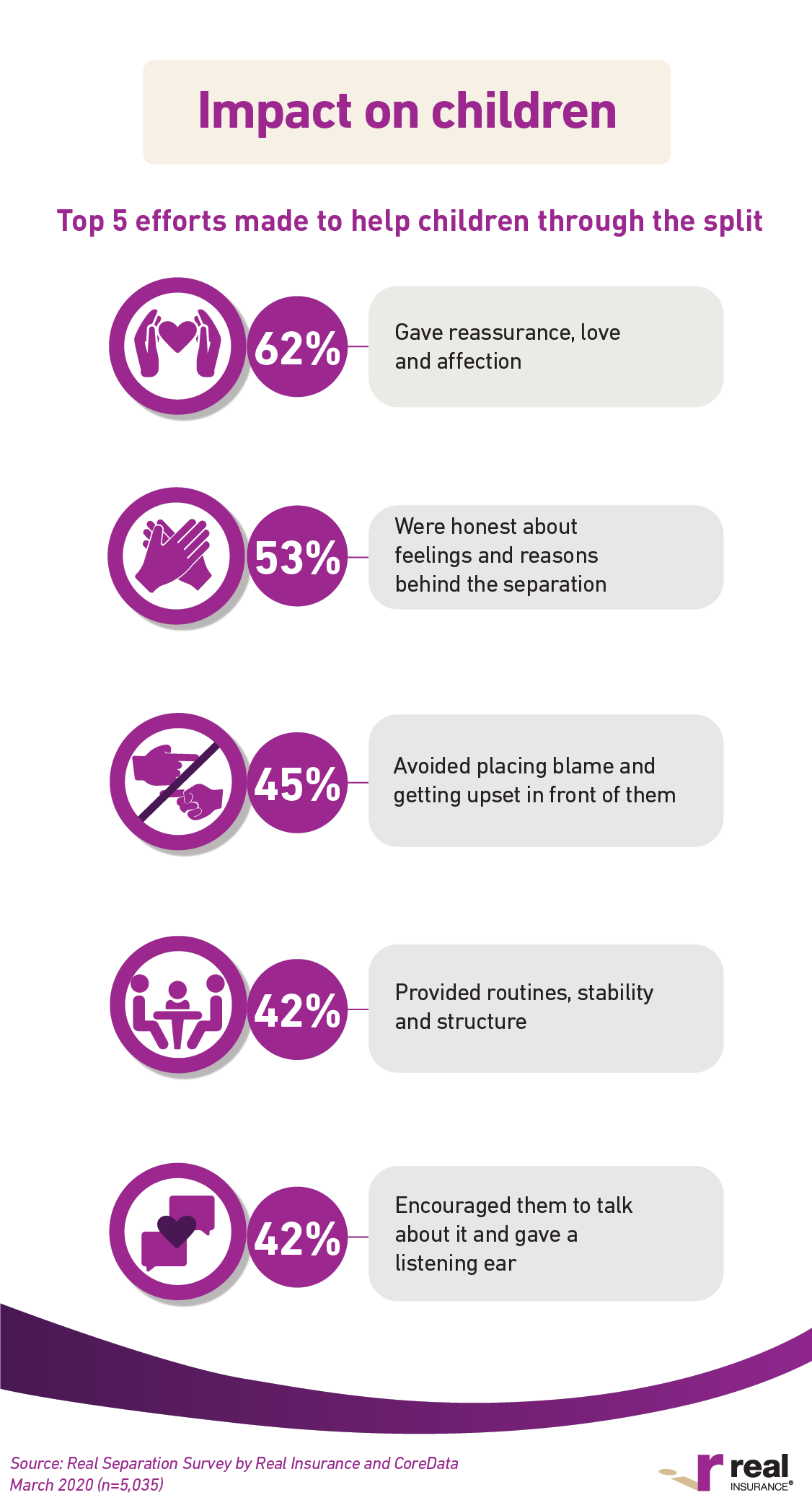What are the real costs of separation?
28 Jul 2020
There is no doubt that a relationship breakdown is often the most difficult time in someone’s life. And whilst it can come with heightened emotional stress, concerns for the children involved and complex and unpredictable financial impacts, new research shows that surprisingly, most of us come out of relationship breakdowns stronger.
We recently surveyed over 5,000 Aussies to understand what the perceptions are of relationships in our modern society, what the biggest hurdles in the separation and divorce processes are, as well as how we grow and adapt as a result. The Real Cost of Separation Report also delves into how we’re managing the financial burden, how family units can be maintained and importantly, how children can feel supported through one of the most challenging periods of their – and their parents, lives.
Evolution of marriage
Nine out of 10 believe that relationships and families today look very different compared to the past, and that younger generations are delaying marriage and starting a family. Many also agree that younger generations are becoming pickier before they decide to get married (80%) or deciding not to get married (77%) or have children at all (67%).
The notion of a no-obligation period is also beginning to resonate. Almost a third agree, that couples should be able to marry for an initial trial period and then decide if they would like to remain married.
Despite the everchanging definition of the modern Australian family, one thing remains true – divorce and separation can unfortunately be part and parcel.
We’re often unprepared for what unfolds
Separation is difficult to prepare for, and the majority of those who have gone through a separation or divorce say they were not prepared, mentally (61%), financially (73%), or logistically (57%) for the events that unfolded.

Perhaps unsurprisingly, emotional and mental costs were noted as the biggest challenges of the separation/divorce process. Amongst those who have split from their partners, just under two-thirds stated that the mental and emotional toll on the parties involved was the most difficult aspect, followed by the impact on their children (57%).
The greatest costs
From a purely economic standpoint, the cost of separation/divorce in Australia is staggering. It is estimated that, every year, it’s costing us $3.7 billion in legal expenses and $45 million in divorce application fees alone. With figures like these it’s no wonder the financial impacts are noted as one of the hardest things about the separation/divorce process (54%) by those that have been through it.

What may come as a surprise, is the fact that the price tag of establishing separate homes is considered as the top financial cost.

More than just money
Separation and divorce effects more than just our hip pocket. Two-thirds of those who are separated/divorced feel that the breakdown was a considerable burden on their personal health and wellbeing, while also having an intangible impact on time (57%), children’s happiness (53%) and relationships with friends and family (47%).
Is divorce justified?
Despite the financial and emotional costs, most of us believe that a decision to separate or divorce is justified if someone is unfaithful (87%), or if the mental cost associated with the relationship is not worthwhile (79%). One-third believe that a split should be avoided at all costs – if children are involved. And a similar amount (30%) believe that separation should be avoided if the financial implications are likely to be too great.
Protecting our offspring
When we think about the impact a separation or divorce is likely to have on a child’s life, over two-thirds of us expect the impact on their happiness or wellbeing to be at least ‘considerable’.
That being said, this is overestimated by some, with only about half of those who have actually gone through a separation or divorce reporting the same level of impact on their children.
The research also tells us that providing children with reassurance, love and affection (62%) is the most important factor in supporting them through what can be a challenging time, with being honest about feelings and reasons (53%) and avoiding blaming and getting upset in front of them (45%) helping also.
Ultimately, it’s about fostering a positive environment and ensuring minimal negative impact. And, for some, separation/divorce proves to be the path taken with close to nine in 10 believing that children are better off in the long run, if parents do what makes themselves happy and healthy.
A large proportion (73%) of separated/divorced parents also feel that if managed right, children can emerge from the experience with no negative repercussions.

Preparation is key
Although the majority were not emotionally, financially or logistically prepared for their separation/divorce (61%,73% and 57% respectively), there are ways you can prepare. Financial independence is recognised by many as an important step in the separation process, with half saying they would not have been so financially dependent on their partner. Six in 10 believe they would have been better prepared if they had some independent savings for emergency funds and two-fifths said they would give prior consideration as to what would happen to their shared house, car furniture and other property.
The silver lining
Going through a separation or divorce may be emotionally draining and financially damaging, but the recovery process has been found to be much quicker than expected. A quarter found it took them a year to recover from the process whilst perhaps surprisingly, almost one-fifth found it to be much quicker – recovering immediately.

Post-recovery, almost all separated/divorced couples say they gained renewed perspectives on life and a large proportion (93%) feel as though they have grown and adapted since the split. Additionally, many said they began taking control of their life (68%) and generally became happier (60%). Demonstrating that despite the dark cloud that the separation/divorce process can come with – there are silver linings.
Stay tuned for more of the real deal from Real.
Download full research report
- Real Cost of Separation [PDF]